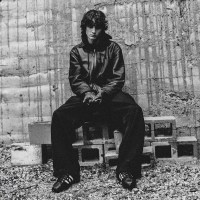
 As the summer of 2025 began, we all knew there were no marquee records. No “Espresso.” No “I Had Some Help.” No “A Bar Song (Tipsy).” In May, we already felt the need. By August, there had been a half-dozen consumer-press articles declaring “no song of summer,” meaning that it was clearly not just programmers feeling a shortage of hits.
As the summer of 2025 began, we all knew there were no marquee records. No “Espresso.” No “I Had Some Help.” No “A Bar Song (Tipsy).” In May, we already felt the need. By August, there had been a half-dozen consumer-press articles declaring “no song of summer,” meaning that it was clearly not just programmers feeling a shortage of hits.
But there were a lot of uptempo songs that I liked this summer. “Love Me Not.” “Sally, When the Wine Runs Out.” “Undressed.” “Mystical Magical.” That Benson Boone song came from an established artist. The others were from less well-known acts (although Sombr was becoming more established by the day).
I liked all these songs because they all had streaming stories, if that’s what you need to feel comfortable that you’re playing a hit. Each year when I write about “Songs That Made a Difference,” I’m always excited when the audience confirms what I think an uptempo, pumping “radio record” should still sound like. In an industry that wants to make records for streaming, I took this as a sign that even indie-pop artists wanted to have hits.
What the songs also had in common, particularly in coming from the indie-pop world, was being uptempo, but not propulsive. They sort of sauntered onto the radio. Sometimes they had those low-key fade-ins that the industry considers more streaming-friendly, although I’m not sure how sounding nondescript for seven seconds commands anybody’s attention. If you had coded them for music scheduling, you might have judged them higher in tempo than energy level.
I’ve noticed a lot of these songs over the last five years. After Post Malone’s “Circles,” some of the only tempo hits of the next few years had a similar airy/loping feel, especially if they broke through streaming: Benee’s “Supalonely,” Nikki Youre’s “Sunroof.” Later it was Harry Styles’s “Late Night Talking” (and even “As It Was” to some extent) or Chappell Roan’s “Good Luck, Babe!” Olivia Dean’s recent international smash, “Nice to Each Other,” qualifies too.
I’ve tried to decide what to call these songs. They’re not quite bangers — they’re mid-bangers, they’re chill-bangers, blasé-bangers. I thought of “meh-bangers,” but, again, they’re songs I like. People use “banger” and the equally overused “bops” pretty interchangeably these days to mean “any song I like.” The songs in question are, usually, boppy. But if banger is descended from “club banger” nothing here is “Lean Back” by Terror Squad. Maybe “club languor.”
Taylor Swift’s The Life of a Showgirl had a lot to live up to with its promise of “twelve bangers.” I’m happy to have it, especially if it brings Top 40 radio a hot hit fall that makes up for summer. “The Fate of Ophelia” and “Opalite” have both read as fun and uptempo on the radio. As if by legislative fiat, the intros are low key. By the chorus, they have achieved propulsion. Thanks to ROR editor Ken Barnes’ suggested coinage, I am dubbing them “turbo-bops.”
Propulsion was, of course, the chief ingredient in the “turbo-pop” of the late ’00s/early ’10s. I do remember a moment, somewhere around the time of Kesha’s “Blow,” where EDM-inspired-pop-dance began to feel oppressive. But the course correction was piano ballads, revival-tent stompers, and a million trap pop songs led by one manipulated vocal sample. Today, Nicki Minaj’s “Starships,” one turbo-pop hit among many in 2012, is among CHR’s most-played gold specifically because little now serves the same need or has the same fun factor.
Swift herself was responsible for changing the tenor of pop music with 1989 as “Shake It Off” gave way to “Blank Space” and “Style.” By “Wildest Dreams,” what had sounded too atmospheric for radio now sounded like a hit single. I alone was ready for her to pick up the pace with “Look What You Made Me Do.” I’m probably still alone on that one, but it sounded good in that morose time, and I enjoy it now because there was no chance to get sick of it.
There are still neo-disco chart hits moving along at a faster clip today — Sabrina Carpenter’s “Tears,” Sarah Reeves’s “Cloud Nine,” Sombr’s “12 to 12” all came along just around the time I wrote that they seemed to be tapering off. Post-Mumford folk/pop has helped create not an endless summer, but an endless “Stick Season.” Those have tempo, too. But there’s not as much in the middle with the combination of tempo, bounciness and drive of an “Espresso,” and both music and radio suffered for it, judging from CHR ratings this summer.
Hip-Hop radio has had numerous issues over the past 15 years, and particularly the last five. I’ve often felt that tempo is chief among them. Latto’s “Big Energy” was not “Lean Back,” but it was a rare uptempo party record, and given the likelihood of any hit song to be copied, I was surprised that nobody tried. In every genre, I wonder if artists feel like they’re too cool to make the records hotter. I was still glad for the energy boost indie pop got this summer; I hope acts keep going.
The post Why The Music’s Not Banging appeared first on RadioInsight.
This story first appeared on radioinsight.com
